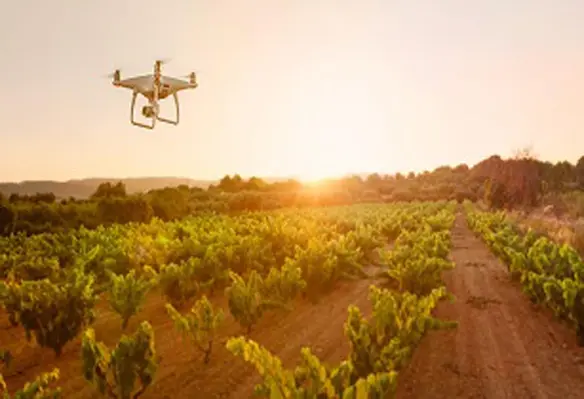Malaysian farms could turn towards smarter solutions such as remote-controlled sensors, drones and robots to monitor, water and fertilise crops as the country looks to boost food security, according to Science, Technology and Innovation Minister, Chang Lih Kang
The country aims to ramp up domestic production using technologies including Internet of Things (IoT) and precision farming in order to reduce import dependency.
“Farms can use IoT to control everything from the soil pH to temperature and humidity. They can even do long-distance farming. Say you’re at home, you can see all the readings on your phone, so you can control it,” Kang told The Straits Times. “Everything is very precise; there is no wastage.”
IoT devices can also be used for greenhouse climate control, crop monitoring, precision fertilisation and other tasks. Robots and drones can deliver smarter and more sustainable methods to automate farming activity and boost crop and livestock yields while reducing usage of water, energy and labour.
Seeking to emulate the success of a privately owned, pesticide-free aquaponics farms that rears tilapia and grows organic lettuce and spinach in Perak with the use of IoT, the Government is executing three similar pilot projects in the states of Perak and Johor. It hopes that the use of IoT in agriculture – where Internet-connected devices monitor and carry out tasks on farms – will become more widespread and help solve food security issues.
“I think that is the way forward, especially when we are talking about food security. When you say food security, it is not only the food supply, but at the same time also the quality of food; whether or not it is safe to be eaten,” added Kang. Other technologies being tested include ways to shorten harvesting periods, as well as increase yield and resilience against pests.
However, the initial high costs could prove to be an obstacle. For a farm of around 930 sq m, an IoT system is estimated to cost around RM50,000 (US$11,317), excluding other requirements such as seeds and a greenhouse, all of which could set a farmer back around RM500,000 (US$137,137).
Like many other countries, Malaysia relies heavily on imports for essential food products, despite an abundance of land and resources. Some of the issues faced by the agriculture sector include labour shortages, low levels of automation and technology adoption, as well as high dependence on foreign labour.
In 2022, Malaysia suffered a poultry shortage following a global increase in the cost of animal feed due to the Ukraine war, leading to a ban on exports to Singapore. Food security is now a priority for the new government.




